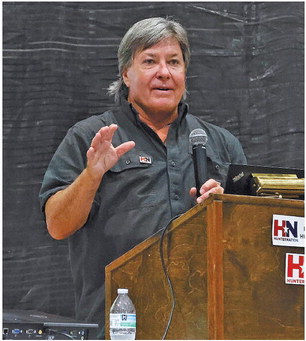TAYLOR COUNTY SPORTSMAN’S CLUB/HUNTER NATION FORUM - Hoping to be heard
Pressure cited as key to wolf management change


TAYLOR COUNTY SPORTSMAN’S CLUB/HUNTER NATION FORUM
If you’re of the opinion that wolves need to be more tightly managed in Wisconsin and...



